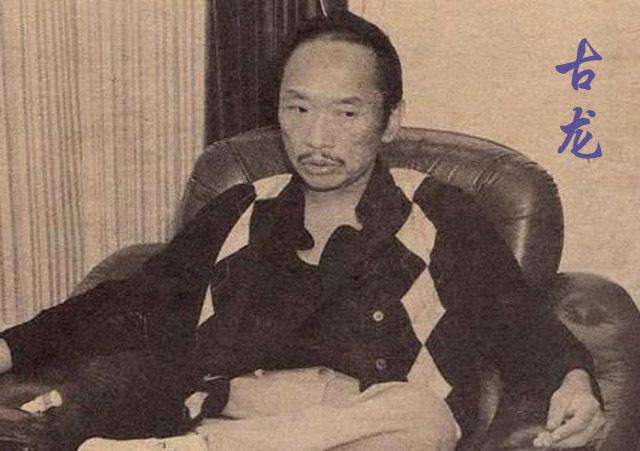Last week I looked at the life and legacy of Jin Yong. This week I looked into Liang Yusheng and Gu Long, the other two masters of wuxia. I also continued reading The Legend of the Condor Heroes, because man is that a long book. After two weeks I’m barely halfway through the first volume. Of four volumes! Which comprise the first book of a trilogy. I’ll be reading this story for months to come at this rate, and I’m perfectly okay with that. But on to this week’s wuxia masters.
The first author I looked into was Liang Yusheng, considered by many to be the pioneer of modern wuxia. He published his first novel in 1954, and promptly inspired a whole new generation of wuxia writers. Most notably, Jin Yong. Liang Yusheng published 35 novels over the course of his career, and he was particularly noted for the female characters that he created. So of course I was very eager to read his works. Unfortunately, finding an English translation of any of his novels proved to be nearly impossible. None of his books have been officially translated into English, and I could only find one unofficial translation of one of his books. I hope this changes in the near future.
I then moved on to Gu Long, and it was here that I found a virtual treasure trove of information. In particular, I found a lengthy essay titled “On Wuxia“, written by Gu Long himself. In it he talks about the history of wuxia, from its origins in the Tang dynasty to modern day. He talks about the five masters of early 20th century wuxia: Huanzhu Louzhu, Wang Dulu, Zheng Zhengyin, Zhu Zhenmu, and Bai Yu, and how it was Wang Dulu in particular who first brought contemporary literary conventions to wuxia novels. And he talks about how Jin Yong combined the innovations of these five masters, and then merged them with both classic Chinese and modern western literature to create the genre as we know it today.
What is also fascinating about this article is that he offers his opinions, almost reviews, on various other wuxia novels and authors. He also gives some fascinating insights into his thoughts on writing itself and his own writing process. For example, he states that the reason his stories (famously) almost always have a happy ending is that he wants to make people happier. Both his characters and his readers. He hopes to leave people with an increased faith and happiness in life. He also argues strenuously for the importance of relationships over action, and stresses that it is the people behind the weapons and elaborate martial arts that are the most important.
Gu Long also has some very interesting things to say about women. He goes out of his way to stress that men and women are of equal importance in wuxia stories. He also emphasizes that he would never look down on any woman, real or fictional. But he then goes on to say that women should never be more formidable than men, and a woman who is physically stronger than a man is inherently unloveable. Women should have the right to strive for their own happiness. So long as their strength comes from their intellect and not their physical prowess. It’s a fascinating contradiction.
Luckily for me there are many translations of Gu Long’s works available in English. His most famous novel, The Eleventh Son, is the only official English translation. But unofficial translations of his other works abound online. I’m looking forward to digging in and seeing how his viewpoints come through in his writings. I’m also looking forward to digging into the website where I found his essay. Wuxia Wanderings is full of articles, translations, and resources about wuxia, so I’m thrilled that I have an extra week this month to dig in. There’s just so much to learn! For now, I want to leave you with some of my favourite quotes from Gu Long and “On Wuxia”.
Even if you take the same plot, when written from different perspectives, what emerges is a novel with a completely different concept and view of humanity that is constantly changing, change along with the times.
Defeat is not good, but success is often achieved from defeat.
Love is one of the most fundamental of human emotions, and it’s one of the earliest, developing much earlier than hate, so much so that it can be said that without love there is no humanity.
One final note. Another master of wuxia, Ni Kuang, died earlier this month on July 3rd. He was described as a giant of Chinese literature, having written over 300 novels in his lifetime. 300! He was also a prolific screenwriter, having written over 300 films during his career. His most famous creations are arguably the characters of Cheng Chao-an and Chan Zhen, both portrayed by Bruce Lee. Unfortunately, Kuang received credit for neither of them. But still. 300 books and 300 films. He was definitely a pop culture powerhouse. He also makes me feel like an incredible slacker.
See you next week! Happy Sunday all!
Suggestions for artists I should check out? Please contact me with your ideas. I hope you enjoyed your daily helping of art!



